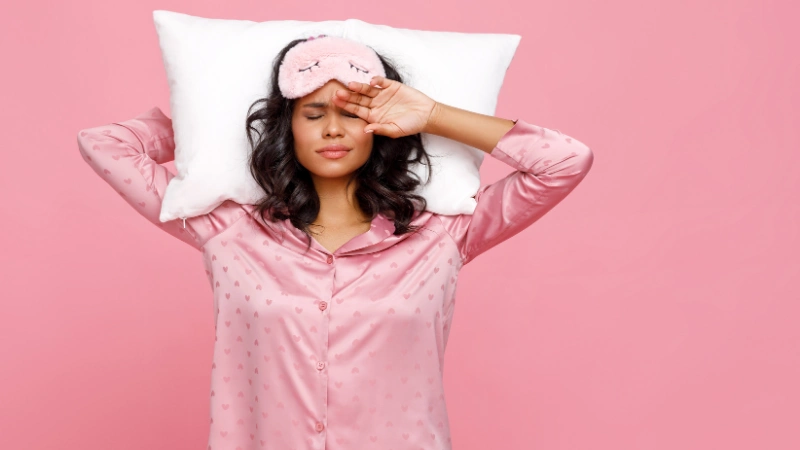Why Better Sleep Is Still a Privilege for Many
- Home
- Why Better Sleep Is Still a Privilege for Many

Why Better Sleep Is Still a Privilege for Many
We all know sleep is essential—something we can’t live without. Yet, while some people wind down each night in a quiet room with blackout curtains and memory foam mattresses, others are tossing and turning under flickering streetlights or squeezing in a few hours of rest between late shifts. The truth is, getting a good night’s sleep isn’t as equal or accessible as we’d like to think.
Though we often hear that sleep is “free,” research shows that better sleep has quietly become a privilege—strongly influenced by where you live, how much money you make, and the color of your skin. From overcrowded housing to chronic stress, the factors that disturb sleep are not spread equally. And the consequences are far-reaching, from poor mental health to long-term chronic illness.
The Sleep Gap You Didn’t Know About
A growing body of research shows a clear divide in who gets healthy, restful sleep—and who doesn’t. Racial and ethnic disparities in sleep are well documented, particularly in North America. According to both the U.S. Centers for Disease Control and Prevention (CDC) and a 2021 review in Sleep Medicine Reviews, Black and Hispanic individuals consistently report shorter sleep durations and lower sleep quality than their white counterparts—even after accounting for variables like age and health status (Grandner et al., 2021; CDC, 2023).
This isn’t due to personal choices or habits. Rather, these disparities are rooted in social and environmental conditions. People from racialized or low-income communities are more likely to live in noisy or overcrowded housing, work irregular or overnight shifts, and face daily stressors such as financial insecurity or discrimination. These stressors can increase cortisol—the body’s stress hormone—which is known to disrupt the body’s natural sleep cycle (NIH, 2023).
When Rest Is Out of Reach
Poor sleep is not just about feeling tired. It carries serious health risks. Chronic sleep deprivation has been linked to heart disease, diabetes, obesity, depression, and even premature death. It also affects focus, decision-making, and emotional regulation, influencing everything from school performance to workplace productivity.
For example, someone working two jobs with unpredictable hours may be constantly sleep-deprived—not because they don’t value rest, but because life simply doesn’t allow it. Single parents, gig workers, and essential employees are among the groups hit hardest. Their sleep is often fragmented, shallow, or delayed, with little time for recovery.
Environmental factors play a big role, too. Imagine trying to sleep while sharing a bedroom, or when your window faces a busy road. Add to that exposure to neighborhood noise, inadequate heating or cooling, and poor air quality, and it’s no wonder some people struggle to get the rest they need.
Sleep and the Wealth Divide
Meanwhile, those in wealthier households often enjoy better sleep—not just due to quieter neighborhoods, but thanks to access to healthcare, mental health services, and even luxury sleep aids. From high-tech mattresses and sleep-tracking wearables to therapist-guided sleep coaching, there’s a growing market for premium sleep solutions that most people can’t afford.
And it’s not just about products. Access to stable housing, safe neighborhoods, and flexible work schedules plays a major role in determining sleep quality. Sleep has become another example of how health outcomes are deeply tied to social and economic privilege.
Bridging the Gap
Thankfully, awareness is growing. Experts argue that sleep should be treated as a public health priority, not just a personal responsibility. Recommendations to address sleep inequality include:
Some cities and public health organizations have begun integrating these ideas into broader health equity plans. But much more is needed to make sleep a right, not a luxury.
Wake-Up Call
It’s time to stop thinking of sleep as a personal choice or indulgence. It’s a biological necessity—one that impacts every aspect of our well-being. But as long as social and economic systems continue to distribute stress, housing, and opportunity unevenly, sleep will remain just another line dividing the haves from the have-nots.
In the end, sleep inequality is not just about bedtime routines—it’s a reflection of how we live, work, and care for one another. And it’s a reminder that even something as universal as rest can be shaped by inequality.
References:
- Share
Magazica
Magazica is a dedicated platform for businesses, subject matter experts, health advocates, and various sectors within the health industry. At Magazica, we are committed to sharing the latest health information and developments with our audience. We serve as a gateway for health-related businesses to showcase their progress and advancements, demonstrating how they contribute to enhancing people's wellness.
